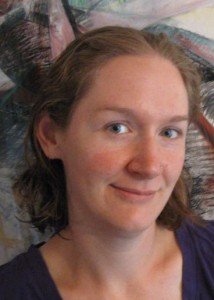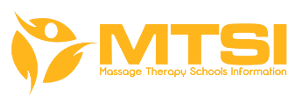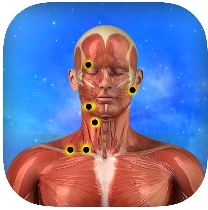
I’m a solo practictioner, or an independent contractor. I work for That’s the Rub Massage Therapy Center in Bloomington, IN, which has 8 massage therapists on staff at the moment.
We’ve got 5 treatment rooms, and they’re filled pretty regularly, especially on the weekend! The center is known for massage that gets results, and specializes in sports, deep tissue, myofascial, neuromuscular, and other therapeutic modalities.
We also offer some spa services as well, and have many clients who come to simply relax and refresh. Clientele come from all walks of life, but we get our fair share of students, professors and staff from Indiana University (located just a mile or so from us).
2. Tell us why you chose to go into massage and at what point in your life did you decide to do so? What were you doing at the time? Where did you first hear about the massage career? What factors influenced your decision? What were you looking to get out of this decision?
I decided to get into massage in my mid-20s. I was working as a production coordinator at a frame shop in the Bay Area at the time, and it just wasn’t fulfilling me as much as I’d have liked. I’d thought about going into a career in massage since high school, but never got the ball rolling.
I first learned of massage as a career at a school/clinic in St Louis where I would go every once in a while for a student massage. After high school, I earned a Bachelor’s of Fine Art.
I still love being a part of the art world to this day, but I didn’t like having a career in it. Massage provided me with a chance to have a creative outlet in a job where I felt more energized around having a career. I was looking for a way to feel happy to go to work, while contributing to something bigger than myself.
3. What were some of your questions and concerns before further pursuing your massage therapy goals? Talk about concerns with school and the profession itself.
In order to afford school, I needed to keep my full time job and take night classes. I wondered whether that goal was realistic for my schedule and my sanity. It turned out that receiving massage regularly in school helped reduce the stress of that!
I also wondered if, after graduating, I’d have enough money to live on and pay my loans off. And a big question was – would I be any good? The only way to answer this one was to just give it a go.
Specific to the school, I wanted to know if they provided real-world experience – whether through a student clinic or internships. I also wanted to know the extent of the technical skills they taught, and how useful they’d be in practical application.
4. What is your specialty and what are the top three contributing factors to your success today?
My specialties are myofascial work, deep tissue, and trigger point release. A big contributing factor to the success of my practice thus far is that I worked with other health professionals (mainly chiropractors) to learn more specifically about client care and body awareness.
I also stuck to a strong work ethic – keeping a very regular schedule and being a dependable therapist. Finally, I made it a point to be professional and compassionate – I strive to build trust with my clients by respecting them as individuals and respecting myself as a therapist.
5. What do you like about your specialty? What do you like about what you do in general as a career? Why?
I like how effective it is on chronic and acute conditions alike. After a couple treatments, clients can get their bodies on another plateau and gain a better sense of body awareness. This usually breaks their pain cycle, enabling them to take more control over their health.
In general, I love that a massage can represent a turning point in someone’s life – whether it be for just that day, the month, or even over years. I think massage can provide a still space for change to occur that would otherwise have a harder time of it. To see this turning point happen even once in my career has been a blessing, and I’ve been fortunate to see several.
6. What do you not like about what you do? Why?
The most frustrating thing about being a massage therapist are the occasional misunderstandings around being mistaken for a sex worker, or the client’s inability to distinguish between sexual and non-sexual touch. Fortunately, I have not had a direct experience with this. However, I know colleagues that have – it just comes with the territory.
On a completely different note, I’ve never been a fan of dealing with marketing either. It just doesn’t capture my interest the same way interacting with clients and solving bodywork issues does. It’s one of the reasons I love working as a contractor with an establishment that handles most of that aspect!
7. If there were three things you could change about your work or the industry as a whole what would they be? Why would you change them? What would you change them to?
First, and this may be considered outside of the profession, I’d love to see massage covered to some degree by more insurance companies. I think people would take advantage of the amazing preventative care it provides if they weren’t fronting the entire bill, and it might save insurance companies money in the long run.
Second, I’d keep pushing the knowledge out there about the therapeutic benefits of massage modalities. This is happening currently, but I think it still has a way to go. Third, I’d like to see more use of massage in the western medical field – in hospitals, doctor’s prescriptions and care plans, and by more medical professionals themselves.
8. How long do you plan to practice and what do you plan to do after?
At least another 10 years. I’m interested in pursuing a career in physical therapy, or potentially opening my own massage co-op down the line.
9. Do you currently have another job or business whether full time or part time? Tell us a bit more about it and how you are able to juggle that with your massage career?
No I don’t. I work as a massage therapist only.
10. What are some mistakes you made in your career pursuit that you’d like to warn other students about so they can learn from your experience and avoid it?
I didn’t pay enough in estimated taxes and got burned at the end of my first couple years. I now try to avoid this by revisiting how much I pay at the end of each quarter, and err on the high side in order to avoid the big bill at the end. Also, for several years I wasn’t setting strong scheduling boundaries for myself.
This resulted in my working at least 6 days a week, and having a schedule that was all over the map. I finally got the courage to limit my hours and set a harder line. I still filled my shifts, made enough money, and had more time for myself, my friends, and my family.
And that brings me to the point of scheduling self care. Don’t assume you’ll just do it when you feel like it. By the time you’re hurting, you’ve waited too long. Set up regular trades, and try to schedule them in advance!
11. What would you advice someone who is looking at massage therapy schools? What do you recommend they look for and how? How do you recommend they determine whether the school is the right one for them?
If you’re looking for massage schools, really think about what you’d like to get out of your school. Are there specific modalities you want to learn? If you’re not sure, book some massages for yourself and find out if you like or don’t like something. Also, consider class size and student/teacher ratio – getting access to more one-on-one attention is great.
I also suggest finding a school that not only teaches the philosophy and techniques of massage, but the business side as well. It puts your feet on a practical path and sets you up for more success.
12. What do you recommend for someone who wants to go to massage school but cannot afford it?
Look into federal aid and student loans. They’re solid loans to have, and interest rates are usually low. You can also look for a school with a more extended program, meaning the cost will be broken into smaller, more digestible chunks. You could also sell friends and family “vouchers” for massages after you’ve graduated to get yourself some capital up front for tuition.
13. What are your three biggest points of advice for an aspiring massage therapist today? What should they do/not do? What should they think about and consider?
First, keep learning! Even after you’re out of school, there’s so much to learn and experience. Attend workshops, read articles, watch DVDs of techniques. This not only increases your skill level and knowledge, but also keeps you more interested and engaged in your career.
Second, pick one or two modalities to specialize in. It helps distinguish your work, and focuses your energy in a specific practice. Third, receive massage on a regular basis. Not only does it help keep you in working order, it also can teach you things and allows you to have greater empathy toward your clients on the table.
14. Any open thoughts / comments – anything else that you’d like to share about yourself, the massage industry, profession, future, etc? If nothing, make one prediction for the future of massage?
I’ve worked at several different types of massage establishments – from clinical to more spa-like. Even though I didn’t relish having to juggle and change jobs, it did afford me a great opportunity to see a variety of business practices, get experience working in different types of spaces, and see a wide range of clients. I value what I’ve learned from each job site, and feel it’s made me a stronger therapist.
15. What is your passion outside of massage? What are your hobbies and interests which you pursue when you are not working? Tell us why you enjoy what you enjoy.
Hiking and cycling – I love exploring the outdoors and soaking in life at a different pace and rhythm. Reading – I’m an avid reader, and love books of all kinds. They show me different perspectives and let me see with different eyes.
Viewing and making art, knitting and crocheting, and cooking – all forms of creative outlet! I love making things with my hands, and these are the things I seem to have a knack for (so far).
Theresa DeBuhr is a Certified Massage Therapist and practices with the That’s the Rub community. She can be reached here.








Leave a Reply